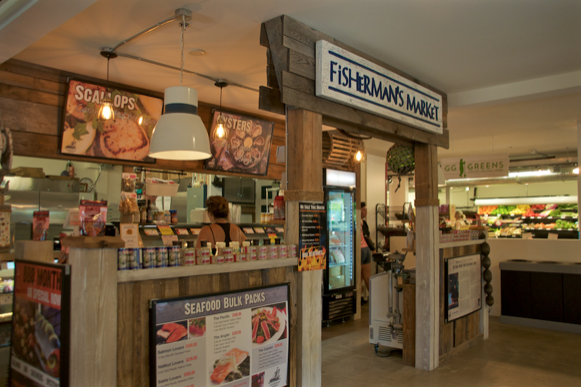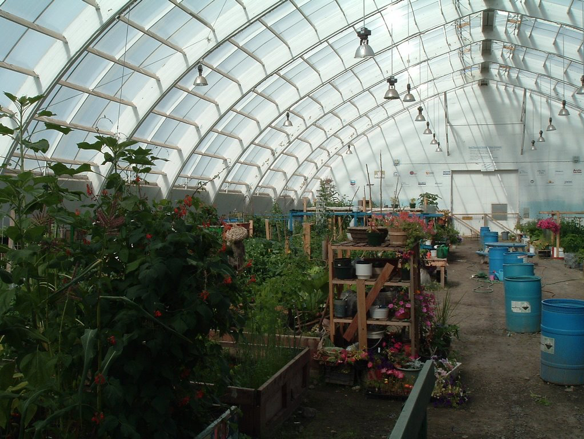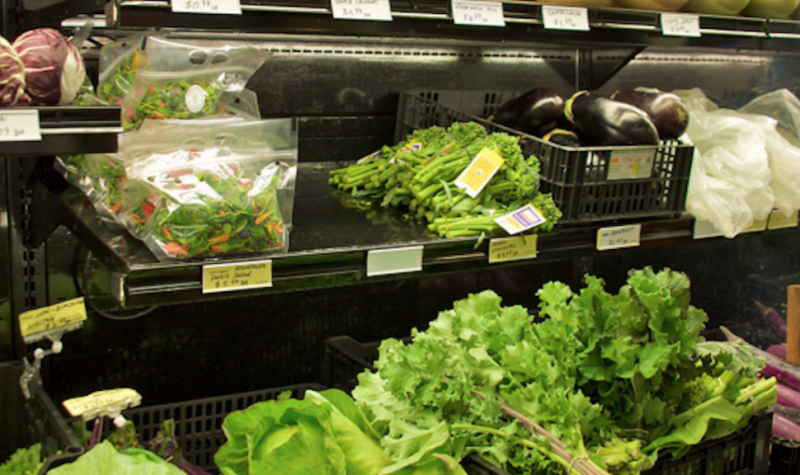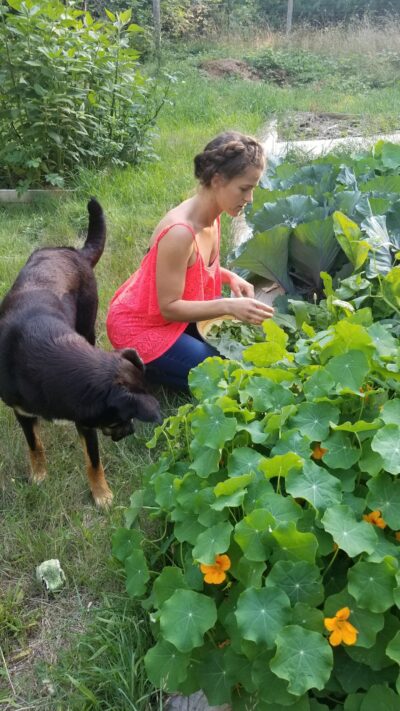By Tara Warkentin
“To me, food security is about being able to relive the individual and community from stress and anxiety around how they’re going to feed themselves and their family,” Loni Taylor says. “Taking that weight off allows our community to fulfill all the other roles that they want to or were meant to fill. And it enables us to be stronger and healthier in the process.”
A Vibrant Green Hub
Loni Taylor is a member of the CCEDA – the Cortes Community Development Association. CCEDA is working on initiatives to improve local food security. They are informed by a recent survey, which addressed community needs and desires. Respondents were eager to grow more food, but identified a need for permanent growing space.
“[Many] people that have the knowledge and the desire to grow their own food don’t have sustainable year round housing on Cortes, and they’re usually displaced sometime in the spring.” Loni says.
CCEDA’s food security initiatives aim to fill this gap by providing solid ground for all islanders to grow food in. CCEDA is entrusted with 2.7 acres of commercial land in downtown Manson’s Landing, adjacent to the Community Housing project, that they hope to develop into a vibrant green hub that meets islanders needs. CCEDA also hopes to generate produce and revenue for the Food Bank.
Loni shares her own dreams for a community food preservation and storage facility.
“One of the main issues that we’ve found in our outreach is that despite the fact that there’s several commercial kitchens on Cortes, there’s very little opportunity for restaurant food industry entrepreneurs to start up any kind of food business wth those commercial kitchens because there’s no place for them to store an inventory. And it’s just it’s a huge struggle. I think it’s really key that we create an infrastructure with extensive and pragmatic facilities for cold storage.”
She says we can grow a lot of produce on the island, “but we can’t store it. We can’t make it last because we’re lacking the facilities or the space or even just the knowledge of, of creative ways to do that.”

Some of the stalls selling local products, from seafood to greens, in the Gibsons’ Public Market. Photo credit: Flickr – Rebecca Bollwitt
Inspirations
She tells me she’s inspired by projects like the Gibsons Public Market, that houses local cheesemongers, fish-sellers, and farmers, and cafes, as well as a community events space. She is also looking to community greenhouses, like the Inuvik Community Greenhouse in Nunavut, for examples of how projects can be adapted to specific community needs.
Loni says the CCEDA’s initiatives will be guided by ongoing community input and the leadership of Cortes’s expert gardeners and food producers. “There’s also a lot of knowledge on the island,” she tells me. “There’s very specialized individuals that have the background to lead us in some of those endeavors and be educators and in the community.”

The Inuvik Community Greenhouse produces abundant food in the arctic ecosystem. Photo credit: Phillipe Morin
Contacts
To get involved with CCEDA’s Initiatives, you can contact them at info@cceda.ca
What feeds us in the time of COVID-19? Are you a local farmer, fermenter or food enthusiast? I’d like to speak to you about local food systems! If you are interested in being interviewed on an episode of Nourish, contact me at tara.w.721@gmail.com



